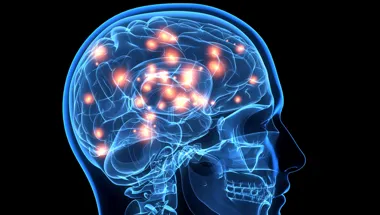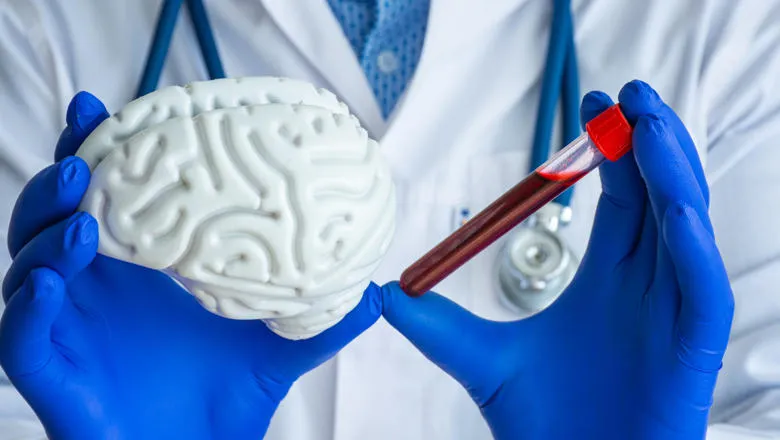
Professor André Strydom
Professor in Intellectual Disabilities
Research interests
- Disability
- Neuroscience
- Mental Health
Biography
André Strydom is a specialist in the Psychiatry of Intellectual disabilities. Professor Strydom is an expert in ageing-related issues and the cognitive issues associated with Down syndrome (trisomy 21), including Alzheimer’s disease. He leads the NHSE’s LeDeR partnership with King’s College London and other partners to address avoidable causes of death in people with a learning disability or autistic people.
Current projects and collaborations include the LonDownS study, previously funded by the Wellcome Trust and currently funded by the MRC to study the development of Alzheimer's Disease in Down syndrome; other funders include the NIH, Baily Thomas Fund and the Jérôme LeJeune Foundation. This work concerns detailed cognitive phenotyping of individuals with Down across the lifespan, and tracking change with ageing using MR, EEG and fNIRS neuroimaging, and includes identification of plasma biomarkers of cognitive decline using markers related to inflammation, amyloid, neurodegeneration, and oxidative stress.
He is a founding member of the Horizon21 European clinical trial network for Alzheimer’s disease in Down syndrome funded by the Jérôme LeJeune foundation, and one of the investigators in the European Union’s Go-DS21 study of comorbidities during the early lifetime in Down Syndrome, as well as the international trial-ready cohort (TRC-DS) study of older adults with Down syndrome funded by the NIH.
Dr Strydom leads the Neurodevelopmental disorders clinical trials centre (ND-CTC) in the FANS department which conducts phase II/III clinical trials for treatments of conditions associated with Autism, Down syndrome and Fragile X syndrome. The ND-CTC currently supports industry sponsored trials of several new drug treatment options.
Research Interests
- Down syndrome
- Alzheimer’s disease
- Intellectual disabilities
- Autism
- Fragile X syndrome
- Health inequalities
Research Groups
- LonDownS Consortium - https://www.kcl.ac.uk/research/london-down-syndrome-consortium-londowns
- Go-DS21 https://go-ds21.eu/
- AIMS-2-Trials https://www.aims-2-trials.eu -
- Horizon21 Consortium - https://horizon-21.org/
- Trial-ready cohort Down syndrome - TRC-DS https://www.trcds.org/
- PETAL programme - https://www.ucl.ac.uk/psychiatry/research/epidemiology-and-applied-clinical-research-department/petal-programme
- NHSE’s learning from the lives and deaths of people with a learning disability and autistic people (LeDeR) https://www.kcl.ac.uk/research/leder
Expertise and Public Engagement
- Chair of the Intellectual Disabilities Dementia Interest group - https://www.kcl.ac.uk/ioppn/depts/fans/research/dementia-in-intellectual-disabilities-special-interest-group-did-sig
- Past President of the Trisomy 21 Research Society - https://www.t21rs.org
- Executive committee, Royal College of Psychiatrist’s intellectual disability faculty
Research

London Down Syndrome Consortium (LonDownS)
London Down Syndrome Consortium is a multidisciplinary group of clinicians, human geneticists, developmental psychologists, mouse geneticists, psychiatrists and cellular scientists working towards understanding dementia in people with Down syndrome.

Neurodevelopmental Disorders Clinical Trials Centre (NDD-CTC)
Neurodevelopmental Disorders Clinical Trials Centre (NDD-CTC)
Project status: Ongoing

Learning from Lives and Deaths – people with a learning disability and autistic people (LeDeR)
The latest annual LeDeR report in collaboration with our academic partners on behalf of NHS England.

Dementia in Intellectual Disabilities Special Interest Group
The DID-SIG is an independent group composed of clinicians (including clinical psychologists, psychiatrists, occupational therapists and nurses) from across the UK and beyond who have a special interest in dementia in people with intellectual disabilities.
News
2022 LeDeR report into the avoidable deaths of people with learning disabilities
The 2022 LeDeR report, which seeks to investigate and learn from the avoidable deaths of people with a learning disability in England, was published today.

Tracking multiple morbidities across the lifespan in people with Down Syndrome
New research from the Institute of Psychiatry, Psychology & Neuroscience (IoPPN) at King’s College London has explored the health experiences of people with...

Children and young adults with Down Syndrome four times more likely to have diabetes
Children and young adults with Down Syndrome are four times more likely to be diagnosed with diabetes, according to new research led by King’s College London...

2021 LeDeR report into the avoidable deaths of people with learning disabilities
The 2021 LeDeR report, which seeks to investigate and learn from the avoidable deaths of people with a learning disability in England, was published today.

King's to lead new collaboration to reduce health inequalities for people with learning disabilities and autistic people
King’s College London, working with the NHS England and NHS Improvement, will lead a collaboration of several academic, Trust and voluntary sector partners...

Simple blood test can accurately reveal underlying neurodegeneration
A new study of over 3000 people led by King’s College London in collaboration with Lund University, has shown for the first time that a single biomarker can...

Features
IoPPN Inaugural Lectures: 2017-2019
Inaugural lectures are given by newly arrived or promoted professors, who use the opportunity to introduce themselves, to present an overview of their own...

- Mental health in people with intellectual disabilities
- Neuropsychiatry
- Clinical neurodevelopmental science
Research

London Down Syndrome Consortium (LonDownS)
London Down Syndrome Consortium is a multidisciplinary group of clinicians, human geneticists, developmental psychologists, mouse geneticists, psychiatrists and cellular scientists working towards understanding dementia in people with Down syndrome.

Neurodevelopmental Disorders Clinical Trials Centre (NDD-CTC)
Neurodevelopmental Disorders Clinical Trials Centre (NDD-CTC)
Project status: Ongoing

Learning from Lives and Deaths – people with a learning disability and autistic people (LeDeR)
The latest annual LeDeR report in collaboration with our academic partners on behalf of NHS England.

Dementia in Intellectual Disabilities Special Interest Group
The DID-SIG is an independent group composed of clinicians (including clinical psychologists, psychiatrists, occupational therapists and nurses) from across the UK and beyond who have a special interest in dementia in people with intellectual disabilities.
News
2022 LeDeR report into the avoidable deaths of people with learning disabilities
The 2022 LeDeR report, which seeks to investigate and learn from the avoidable deaths of people with a learning disability in England, was published today.

Tracking multiple morbidities across the lifespan in people with Down Syndrome
New research from the Institute of Psychiatry, Psychology & Neuroscience (IoPPN) at King’s College London has explored the health experiences of people with...

Children and young adults with Down Syndrome four times more likely to have diabetes
Children and young adults with Down Syndrome are four times more likely to be diagnosed with diabetes, according to new research led by King’s College London...

2021 LeDeR report into the avoidable deaths of people with learning disabilities
The 2021 LeDeR report, which seeks to investigate and learn from the avoidable deaths of people with a learning disability in England, was published today.

King's to lead new collaboration to reduce health inequalities for people with learning disabilities and autistic people
King’s College London, working with the NHS England and NHS Improvement, will lead a collaboration of several academic, Trust and voluntary sector partners...

Simple blood test can accurately reveal underlying neurodegeneration
A new study of over 3000 people led by King’s College London in collaboration with Lund University, has shown for the first time that a single biomarker can...

Features
IoPPN Inaugural Lectures: 2017-2019
Inaugural lectures are given by newly arrived or promoted professors, who use the opportunity to introduce themselves, to present an overview of their own...

- Mental health in people with intellectual disabilities
- Neuropsychiatry
- Clinical neurodevelopmental science
